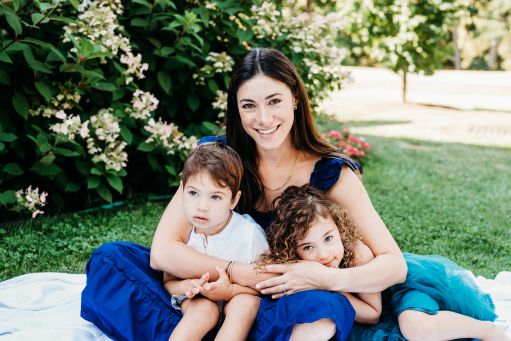
From Founder to CEO: CBS Alum Gabby Slome Shares Her Entrepreneurship Journey
‘For me, it’s definitely about finding my inspiration through things like personal pain points.’
Kelly Ifill ’17 chats about career pivots, community, and her commitment to supporting Black and brown entrepreneurs.

The corner deli and other mom-and-pop shops may not draw the most attention from investors, but these Main Street staples are often the backbone of a community. At the start of the pandemic, when Kelly Ifill ’17 noticed such shops shuttering in places like her Brooklyn neighborhood Bedford-Stuyvesant (Bed-Stuy), she decided to put her own propensity for entrepreneurship to good use.
In 2021, Ifill launched Guava, a full-service, digital-first bank serving Black small business owners and entrepreneurs. In a recent conversation, Ifill shared how she transitioned from a career in education to launching a financial technology company, as well as her experience getting Guava off the ground.
Kelly Ifill: The through line was always about creating opportunities for Black and brown people. There was no question I wanted to create opportunities through education for people I grew up with in Bed-Stuy. That was really important to me as a recent college grad.
The last job I had before attending Columbia Business School was implementing technology in schools in Dubai. I met many edtech executives and realized they didn’t have much grounding in the classroom. So I began asking, “Where are they getting the money for these startups?” That’s when I learned about venture funding.
Ifill: I went to CBS specifically to explore venture funding for edtech. In 2017, edtech was nascent; it was super-niche.
I credit business school with giving me the confidence to move into entrepreneurship. Thanks to my education, I can hop into a conversation about private equity and have friends I can call on with questions. That was the real value CBS brought me.
Ifill: Yes — I said, “Let me go somewhere stable for a sec.” But ultimately, I wanted to get back to creating opportunities for Black and brown people.
I was reading about the national wealth gap between Black, Latinx, and white Americans. That research spoke to my lived experience. At the time, most people hadn’t heard of the 10-to-1 differential: that the median wealth of white households is 10 times that of Black households.
Ifill: With Guava, I wanted to focus on Main Street companies: barbershops, bakeries, yoga studios. Their resources are limited. Their launches aren’t featured on news sites. But they hire people from the community — and during the pandemic, their businesses closed in large numbers.
With Guava, we offer a white-glove, private, and unique banking experience. We bring in partners and financial experts who create relationships, understand clients’ needs and priorities, give recommendations, share experiences and best practices, and help people leapfrog over mistakes.
We also make it really easy to open a business account. You can open one in 10 minutes.
Ifill: Most of us have read the reports about — or experienced firsthand — how women are more commonly asked questions that force them to defend their business rather than articulate how they can grow or scale it. While we can't change the questions people pose, we can reframe them and respond accordingly.
Ifill: If you’re thinking about starting a company, talk about it with people — a lot. Refine your idea. Ask for help and feedback. For a year, I was working a full-time job and also had a friend helping me with whiteboarding, refining, and doing informational chats. I surrounded myself with other tech founders that helped normalize the decisions.
Also, accept that you’re not going to have all the answers. When you're inventing or reimagining something, there’s not always going to be a blueprint. … You're going to make decisions with imperfect information and with your gut. Sometimes you're right, and sometimes not, but the key is taking both outcomes as data points and making clearer decisions each subsequent time.
Read more articles in this series:
A Tech Entrepreneur Shaping a Truly Circular Economy
Biotech Entrepreneur Grows Strong Bones and a Strong Business

‘For me, it’s definitely about finding my inspiration through things like personal pain points.’

Carolyn Butler ’18 talks about creating a blueprint for the first truly circular business model in the US apparel industry.

Nina Tandon ’12 talks about the origin of EpiBone and overcoming the challenges facing women entrepreneurs.

These dynamic entrepreneurs discuss the tech businesses they’ve launched, navigating COVID, and ways women founders can prevail over their unique obstacles.
The COVID-19 pandemic has changed the world of business, while bringing historical inequities and injustice into sharp relief.
Subscribe to Leading Through Change to receive the latest insights from Columbia Business School to help you navigate this unprecedented time.
There was an error, please try again.
Go Back